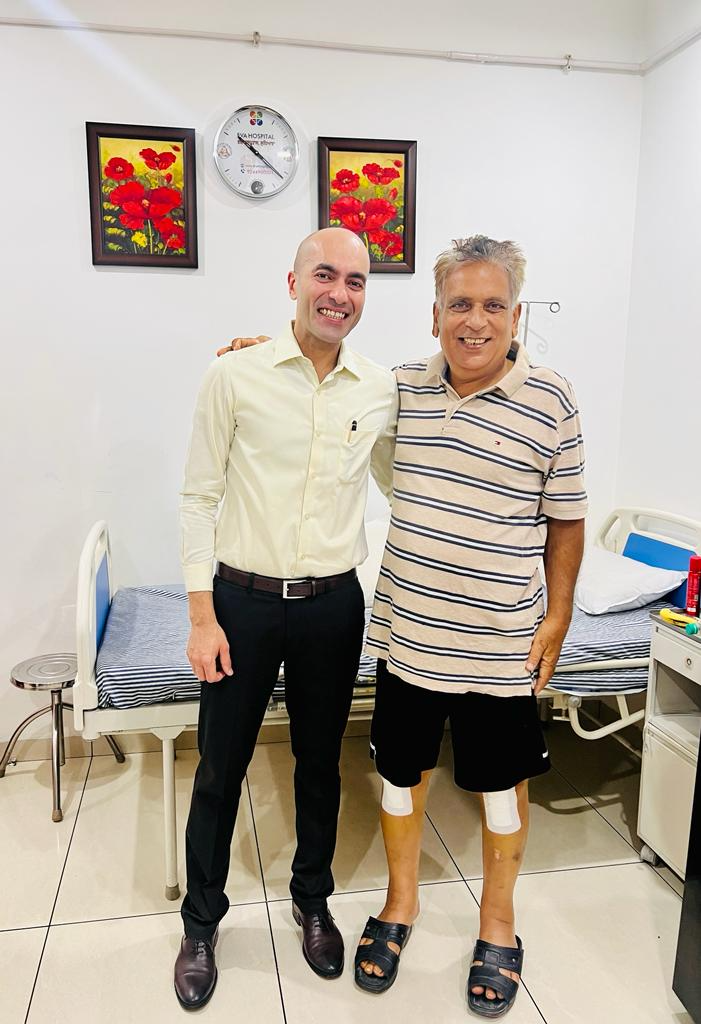Infertility is not just a female issue. In fact, research shows that about 30% of males are also struggling with infertility issues such as sperm tube blockage, azoospermia, oligospermia, abnormal sperm morphology, and more. If you and your partner are having difficulty in conceiving, it’s time to take action. Consult with a doctor and undergo female and male infertility testing to identify the root cause of the problem. With a proper diagnosis, your doctor can recommend the best course of treatment for you and your partner. Don’t let infertility get in the way of your dreams of starting a family. Take charge of your reproductive health and explore your options today.
This blog focuses on Oligospermia – one of the common infertility issues in men – and provides valuable insights into its symptoms, causes, and treatment options.
Oligospermia- Meaning
- Oligospermia is a medical condition that refers to a lower-than-normal concentration of sperm in a man’s semen.
- According to the World Health Organization (WHO), a low sperm count is when the semen has less than 15 million sperm per milliliter.
- However, it’s crucial to understand that even if a man has a low sperm count, it’s still possible to conceive, but the chances may be lower than usual.
There are three types of oligospermia:-
- Mild oligospermia
Sperm count is in-between 10 to 15 million sperm/mL.
- Moderate oligospermia
Sperm count lies between 5 to 10 million sperm/mL.
- Severe oligospermia
Sperm count ranges between 0 and 5 million sperm/mL.
Oligospermia- Causes
- Varicocele is the main cause of infertility in which there is inflammation of the veins.
- Ejaculation problems can also reduce the sperm count. Retrograde ejaculation reverses back the semen to the bladder instead of the penis.
- Hormonal imbalances such as an increase in estrogen or a decrease in testosterone can impact the sperm count.
- Sexually transmitted infections also contribute to oligospermia.
- Different surgeries such as vasectomy, prostate surgery, hernia repair surgery etc also lead to sperm reduction.
- Sometimes inherited genetic problems can interfere with sperm production.
- Some medications, drugs and steroids may cause low sperm count.
- Excessive exposure to chemicals, pesticides, paints and many more can cause this problem too.
- Obesity is directly linked to the low sperm count.
- Smoking and excessive consumption of alcohol or tobacco significantly decrease the sperm count.
- Some men are born with undescended testicles in which one or both of the testicles fail to descend into the scrotum. It also leads to infertility.
Oligospermia- Symptoms
Most of the men realize that they suffer from oligospermia after their partner faces difficulty in conceiving. Other than this if you suffer from the following symptoms then you must visit the doctor for oligospermia treatment.
- Swelling and pain in the testis.
- Change in sexual desire.
- Sensation while urination.
- Decrease in hair growth.
- Thick discharge.
- Erectile dysfunction.
- Swollen veins in the scrotum.
Oligospermia- Diagnosis
Male infertility testing and diagnosis involve following:-
- Semen and urine analysis
- Ultrasound of scrotal
- Hormone testing
- Genetic tests
- Biopsy of testicular
- Sperm function test
- Transrectal ultrasound
- Anti-sperm antibody test
Oligospermia- Treatment
Medical therapy
Medical therapy can be considered as one of the treatments for this problem. Depending upon the diagnosis, your healthcare provider may prescribe you anti-inflammatories, pituitary stimulants or antibiotics. But remember one thing, these medications only treat your infections and inflammations. This will not improve your sperm count but will prevent a drop in sperm count.
Hormone therapy
A number of hormonal supplements such as clomiphene citrate, “anastrozole” or human chorionic gonadotropin can restore your pituitary and testicular hormone to a healthy level. When your hormone level recovers, your sperm count automatically improves.
Surgical therapy
If varicocele is the reason for oligospermia, then surgical treatment of the lesion repairs it. In this process, the doctor will redirect the blood flow to another vein and close the enlarged veins.
Lifestyle changes
If you change your lifestyle, the quality of semen will also change positively. Maintaining a healthy weight, stopping using drugs, smoking, alcohol or tobacco, avoiding hot water baths and stress management will improve your sperm number.
Assisted reproduction techniques
If your oligospermia is due to a genetic disorder then your sperm count will not increase with medical and surgical treatment. In such cases, you must visit your doctor for sperm retrieval and assisted reproduction to start your journey towards parenthood. Some of these techniques are as follows:-
Intrauterine insemination
During intrauterine insemination, doctors collect your sperm sample, wash it and then directly place it into the uterus with the help of a catheter. It will increase the chance of pregnancy.
Intracytoplasmic sperm injection
In this process, experts inject live sperm into the egg of a female in the laboratory. If the embryo forms successfully then it will get placed in the uterus. This can give you a higher rate of conceiving.
In vitro fertilization
Mature eggs are collected from ovaries and fertilized with sperm outside the human body in a favorable environment. It is one of the most successful infertility treatments.
Takeaway thoughts
A low sperm count can decrease the chances of conceiving naturally with your partner, but it does not mean it is impossible. You may still be able to fertilize your partner’s egg despite having lower sperm numbers. Don’t let this discourage you from starting a family. Speak to your doctor about oligospermia treatment that could help increase your chances of conception. Taking action now could be the key to fulfilling your dream of becoming a parent.
All the best for your new journey.


















